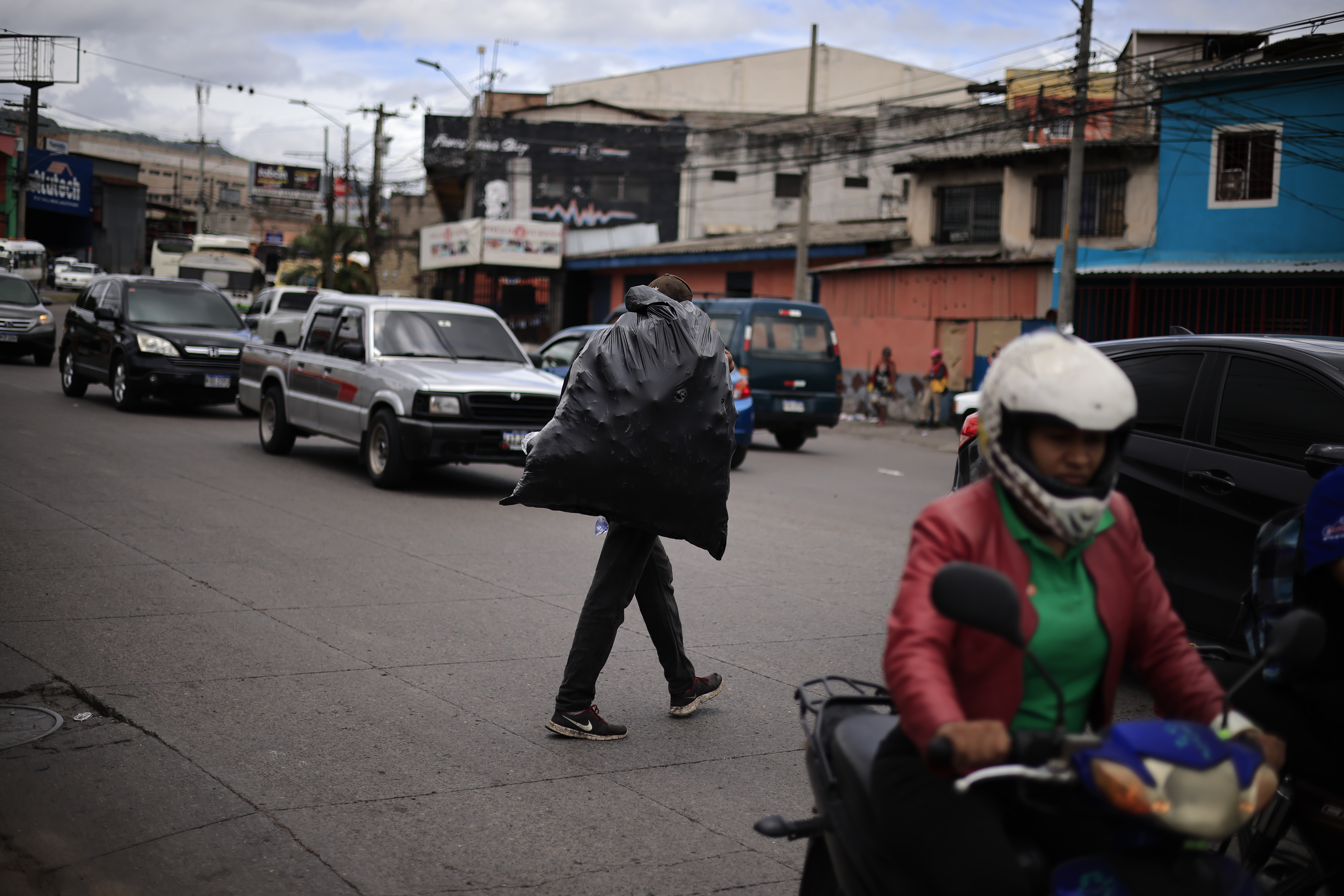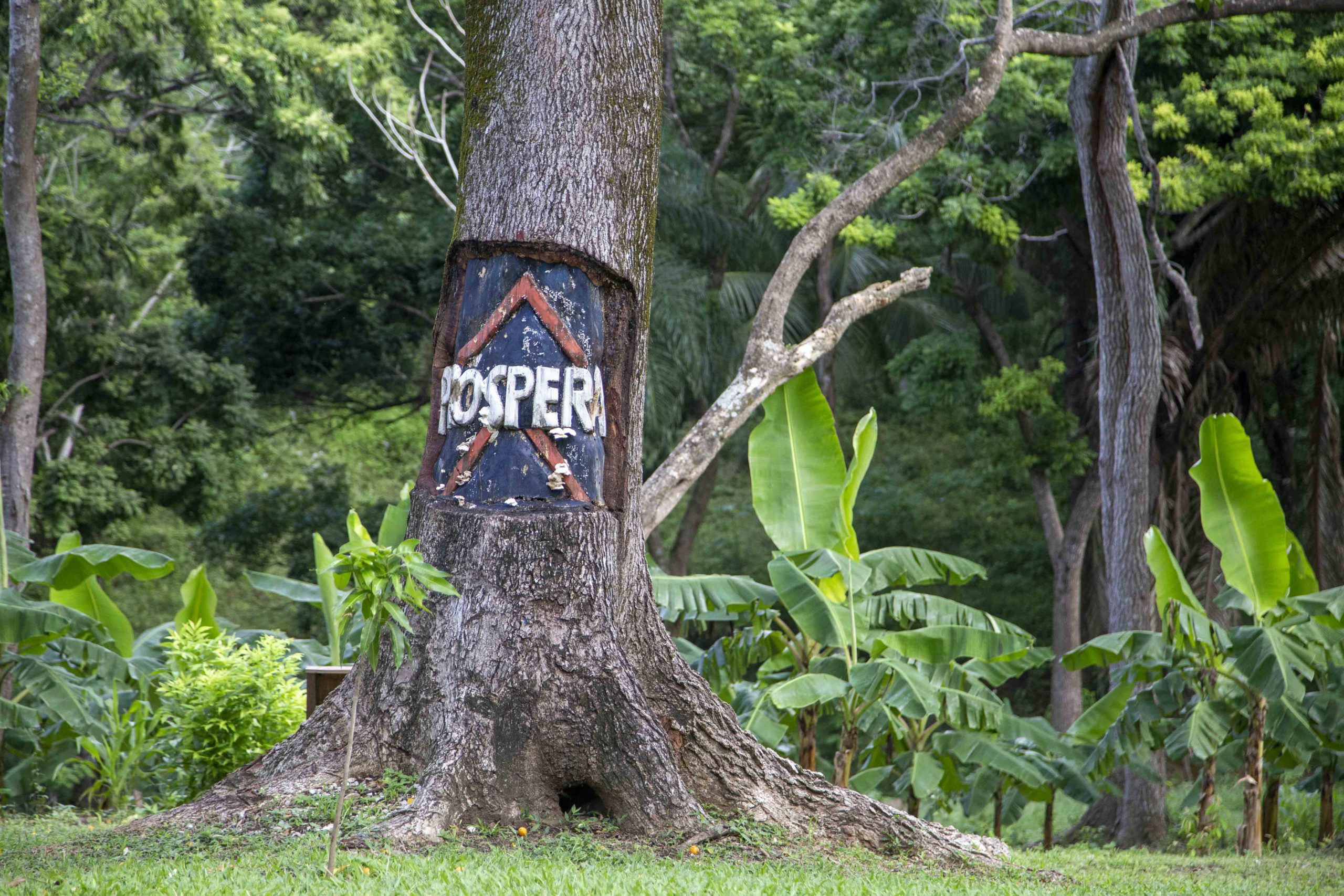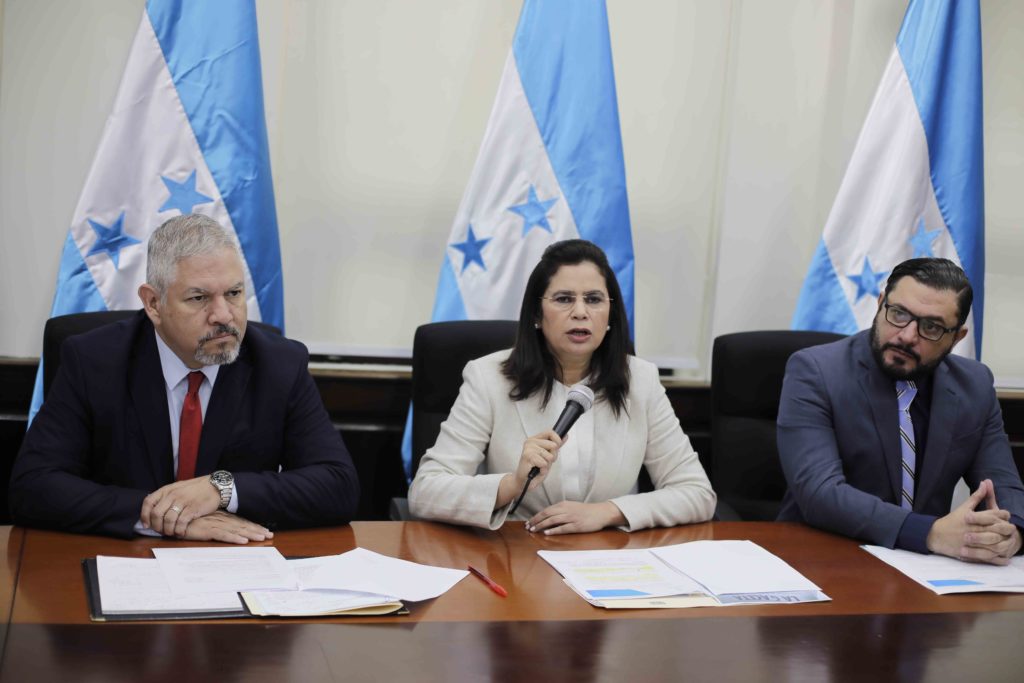Six international arbitration claims were filed against Honduras to the International Centre for Settlement of Investment Disputes (ICSID), which is part of the World Bank and based in Washington D.C. Some of these claims were filed by ZEDE Próspera, an investment company, and Scatec and Norfund, two Norwegian renewable energy companies. While international arbitration experts are concerned about Honduras’ defense, the government questions the legality of the disputes since it doesn’t recognize ICSID’s jurisdiction.
Text: Célia Pousset
Photography: Jorge Cabrera y Fernando Destephen
Translation: José Rivera
An American construction company, ZEDE Próspera investors, two Norwegian clean energy firms, a highway construction company, and a Mexican financial firm filed claims amounting to billions of dollars against Honduras to the International Center for Settlement of Investment Disputes (ICSID) between February 2022 and May 2023.
ICSID is part of the World Bank and acts as a tribunal to settle disputes between States and international investors. During arbitration, all parties submit documentation on two instances and participate in a hearing. Then, signatories must abide by the tribunal’s ruling as if it were issued by their highest State court. Honduras ratified the ICSID Convention in 1989 and is among the 150-plus signatories.
Billions of dollars are at stake. Just two of the claims—those filed by Próspera investors and the Mexican financial firm, JLL Capital—amount to more than $390 million. These numbers are cause for concern, especially in a country like Honduras, the second poorest in Latin America.
In response to these legal actions, the Honduran government created the Commission for Territorial Defense and National Sovereignty (Comisión para la Defensa del Territorio y Soberanía Nacional), which is made up of Finance Minister Rixi Moncada, Chancellor Enrique Reina García, and Commissioner Fernando García. Along with the Attorney General’s Office, whose duty is to protect the interests of the State, the commission will define a strategy for defending Honduras’ case.

Strategic defense or lack thereof ?
In the case of Próspera’s claim, which demands compensation for damages in investments after the repeal of the ZEDE law, the government considered the claim illegal and decided to not participate in the proceedings. They refused to appoint an arbitrator to defend Honduras. García explained the reasons behind such refusal to Contracorriente: “ICSID incorrectly registered Próspera’s claim. Article 26 of the Convention stipulates that Member States have the possibility of joining ICSID and formulating reservations, a prerogative similarly established by the Vienna Convention on the Law of Treaties. The Honduran government decreed that it’s not possible to turn to ICSID if all domestic legal proceedings have not been pursued. So, we don’t have to appoint an arbitrator because we don’t recognize ICSID’s jurisdiction.”
He’s referring to Decree 41-88, which was published in La Gaceta (the Congressional newspaper of the Honduran government) in 1988 and recognized by ICSID as a legal framework. However, an official document that lists States’ reservations concerning the Centre’s jurisdiction doesn’t include the references García mentioned. The document says that Guatemala “does not accept submitting to the Centre’s jurisdiction any dispute which arises from a compensation claim against the State for damages due to armed conflicts or civil disturbances,” or Indonesia, a State that does not acknowledge disputes “arising from the administrative decision issued by the Regency Governments within the Republic.”
Most claims filed against Honduras can be traced back to policies implemented by the administration of Juan Orlando Hernández (2014 – 2022) which have been repealed by the administration of Xiomara Castro, the current president.
This is the case of claims filed by Scatec and Norfund, two Norwegian companies involved in photovoltaic energy projects (Agua Fría and Los Prados) in the department of Choluteca in southern Honduras. These claims were filed in April 2023, one year after Congress ratified the Ley Especial (Special Law) to provide Hondurans with energy as a public good. Under this law, energy companies are obliged to renegotiate their contracts with the State-owned energy company, Empresa Nacional de Energía Eléctrica (ENEE). The objective is to lower the purchase price and remove the financial privileges the previous administration had granted to clean energy companies.
In 2013, the administration of Porfirio Lobo Sosa passed an energy law to promote renewable energy projects by granting companies financial incentives, including an additional bonus for every kWh that solar power plants generate. That law was repealed by the Castro administration.
We contacted Scatec and Norfund via email to know the details of failed negotiations with ENEE and the exact reason for filing the claim, but they didn’t reply.
Solar power plants have caused social and environmental conflicts in the Dry Corridor, and the Civic Council of Popular and Indigenous Organizations of Honduras (COPINH) denounced the Norwegian companies’ connections to David Castillo, former military and president of Desarrollos Energéticos SA (DESA) convicted of murdering Berta Cáceres.
According to a source from Norwegian civil society, the Honduran government paid Scatec $593 million and still owes $189 million. Payments were made in December of 2022 and March and April of 2023. However, Scatec is demanding bonuses from the Honduran government even though other companies have accepted the cancellation of financial benefits and the renegotiation of the contracts.
This is why Norwegian civil society is demanding a withdrawal of the claim against Honduras. Klassekampen, a news outlet, published an opinion piece saying it’s unacceptable that Norfund, a company funded by the State, takes legal action against a democratically-elected government, hindering its capability to decide on its own energy policy.
Since the 2009 coup, corrupt elite groups and transnational corporations have profited from the energy sector, at the expense of the Honduran population.
According to García, the flood of claims is a result of “the previous administration’s connections to the drug trade and organized crime.”
“It’s a mistake” not to appoint an arbitrator
Luis Parada, a Salvadoran lawyer, was in charge of El Salvador’s defense against four claims filed to ICSID. Two of these claims were filed by international mining companies. Parada has extensive experience advising states on international arbitration. He is doubtful about the Honduran government’s defense plan, “Some states are reluctant to hire expert lawyers because it’s expensive, but the cost of not defending their case or proceeding on their own is much higher. The Honduran government is making a mistake. Any objection they may have about a dispute or irregularity must be addressed in the arbitration because it will take place with or without their participation. If representatives of the Honduran State refuse to be present, the tribunal will issue a ruling that must be abided by. The State should not be absent; that would be the worst course of action.”
Parada gave an example, “In an arbitration initiated by Commerce Group, an American company, it was clear that ICSID shouldn’t have registered that claim, but we appointed an arbitrator and addressed our objection to the tribunal. It ruled in our favor.”
There are three arbitrators: one is appointed by the claimant, another by the respondent, and a third one is jointly appointed by both parties or by ICSID. The procedural timetable establishes a 90-day deadline after the date the claim is registered to appoint arbitrators.
If Honduras doesn’t appoint arbitrators, ICSID will. According to Parada, that’s a serious sign of weakness since “any foreign investor can take advantage of the situation. I think that’s the reason why Honduras is up against so many claims. They should’ve shown confidence when the first claim was registered.”
In fact, David W. Rivkin, an American lawyer, accepted his appointment as Próspera’s arbitrator on April 20, 2023, while Honduras still hasn’t appointed one.
“The argument that all legal proceedings in the country should be pursued before filing a claim to ICSID shows that the Honduran State hasn’t received qualified legal advice. CAFTA-DR establishes the process by which controversial disputes between investors and States should be resolved. The initial stage consists of consultations and negotiations, which were initiated by Próspera in June 2022, but Honduras didn’t participate. If this option is exhausted, the international claim will follow,” Jorge Colindres, technical secretary at ZEDE Próspera, explained.
CAFTA-DR is a free-trade agreement between the U.S., Dominican Republic and Central America. It’s also Próspera investors’ legal recourse. It doesn’t mention that affected companies should pursue all domestic legal proceedings before resorting to international arbitration. Chapter 10 of the agreement says that disputes may be submitted directly to ICSID without seeking any domestic legal action.
But according to García, “The ICSID Convention, a multilateral agreement, has legal precedence over CAFTA-DR, a bilateral agreement, so States’ reservations should be guaranteed.”
“As a matter of fact, Honduras is already part of the process as a respondent and cannot decide if it will participate or not because it’s part of CAFTA-DR. The only choice the Honduran government has is to defend its case or not to do it, either with or without legal advice,” Colindres concluded.
In the meantime, the community of Crawfish Rock, in the northern department of Roatán, is concerned about the construction of the Duna towers by Próspera. Luisa Connor, president of the council, told Contracorriente, “We expect the government to shut down the ZEDE while arbitration is underway. The project should be canceled because the ZEDE law was repealed.”
But the repeal has not come into effect because it hasn’t been ratified in the second legislation. The process usually takes three and a half years, according to a source at ICSID.
We asked Fernando García if the Honduran government had adopted the same stance on the rest of the claims, but he was evasive, “I rather not answer because it’s part of Honduras’ strategy to make decisions with regard to its sovereignty and the population’s well-being. But if any criteria renders one case invalid, the same reasoning could be applied to other cases if all domestic legal proceedings have not been pursued.”

Is international arbitration an instrument to loot countries?
The argument about State “sovereignty” is most often presented by the Honduran government to justify its position. Regarding this matter, García says, “It’s not about being sovereign in a capricious manner. Our stance is founded on international law, and the sovereignty of the State against special interests is at stake.”
Manuel Pérez Rocha, analyst at the Institute for Policy Studies, has been working on international agreements and arbitration for many years. He’s also part of an international solidarity group that “analyzes the situation to understand Honduras’ defense strategy in order to provide assistance.” However, he admits that the Honduran government’s stance is not the right one, “States have the right to regulate in favor of public interest and the environment, as established by many free trade agreements, but chapters pertaining to investments stipulate that companies should receive fair and equal treatment from the State without any direct or indirect expropriation.”
According to Pérez Rocha, the argument about sovereignty is not valid because ICSID will not analyze the government’s policy, but how it deals with companies, “For instance, if a State decides to carry out expropriations, ICSID will analyze how the company was dealt with and determine if its profits were affected. What matters is how the government deals with companies and not the country’s sovereignty.”
After many years analyzing international arbitration claims, Pérez Rocha has come to the conclusion that ICSID is part of a “mechanism of control in favor of large corporations and designed to evade the argument of defending a country’s sovereignty.” For example, it’s a fact that mining companies automatically resort to international arbitration against Latin American countries. The report Casino del Extractivismo denounces that “companies have access to an international legal system without any precedent, allowing them to file abusive and expensive claims against countries and operate with much impunity despite harsh criticism of their operations throughout the hemisphere.”
The report points out that the World Bank’s arbitration center is nothing more than the illusion of justice since it cannot be compared to real courts: “Claims are brought to a tribunal composed of three well-paid corporate lawyers who often hold private meetings without any witnesses. This system allows foreign investors to file claims against sovereign States that amount to millions and even billions of dollars.”
Honduras versus legal experts
Law firms advising claimants in settlements with Honduras are among the most successful in international arbitration cases concerning investments. White and Case, an American firm, advises Próspera as well as Scatec and Norfund. JLL Capital consulted the Mexican law firm García Barragán and the international law firm Clifford Chance. Contracorriente tried to contact these law firms via email, but they didn’t reply.
The Honduran government, on the other hand, did not confirm that it consulted a law firm, and, according to García, the Commission for Territorial Defense and National Sovereignty “identifies and sorts documents and engages in international lobbying against foreign investment with hidden interest fees.”
“I think it’s very risky and reckless that they’re defending their own case. Since lawyers at the Attorney General’s Office don’t have any experience in arbitration cases related to investments, they will make silly mistakes. Here’s an example: the first ICSID case I worked on was a claim against Argentina. The tribunal ruled in our favor, but the claimant, a French water company that demanded a $300 million compensation, appealed the ruling. Argentina decided to represent itself in the appeal to avoid incurring legal expenses, but the water company successfully appealed the ruling. The country ended up paying $105 million,” Parada explained.
Manuel Pérez Rocha is also concerned about the Honduran government acting on its own and refusing legal assistance. He said that the international solidarity network demanded the letter written by 33 U.S. Congress representatives, in which they requested support for the Honduran government and criticized the impact of international claims on democratic policymaking. The letter highlights the abuse when corporations submit international arbitration disputes to ICSID and the power imbalance between the Honduran State and international corporations: “Instead of going through domestic courts, these complaints, handled by private arbitration tribunals made up of corporate lawyers, give corporations a disproportionate advantage.”
“In El Salvador’s mining case, legal assistance provided by the international solidarity network was crucial to the tribunal’s ruling in favor of the State. We know that the claim filed by Próspera is a clear example of the chilling effect, a claim that halts any policy or efforts by Congress to repeal the ZEDE law. That’s why international pressure is so important. We can protest in front of the World Bank, but the government has to seek assistance. Recently, we offered them legal advice, but they didn’t reply,” Peréz Rocha said regretfully.
We tried to contact Manuel Díaz, Honduras’ attorney general, and Enrique Reina, Honduras’ chancellor, to inquire about Honduras’ defense and the reasons why legal assistance was refused, but they didn’t reply.







